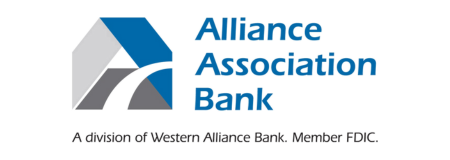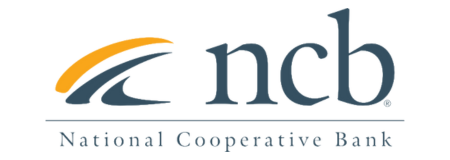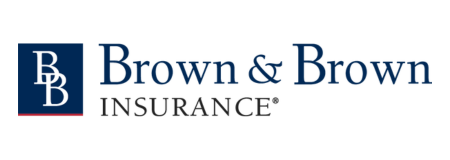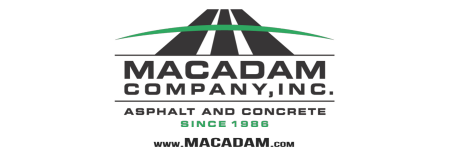The Pennsylvania House Urban Affairs Committee is scheduled to consider multiple bills that will impact community associations at its meeting on Tuesday, September 28, 2021. CAI’s Pennsylvania Legislative Action Committee (PA LAC) supports some of these bills, and is opposed to two of the bills.
House Bill 1795 – Voting Procedures in Community Associations
CAI’s PA LAC is opposed to House Bill 1795. The provisions of this legislation would, if adopted, have a significant impact on the conduct of elections within Pennsylvania’s community associations. The bill as originally introduced contains provisions CAI opposes. CAI has met with the bill’s sponsor, State Representative Rosemary Brown, on numerous occasions to seek changes to the proposed legislation to mitigate the LAC’s concerns regarding the significant impacts this legislation would have on the conduct of elections within all community associations in the Commonwealth. The LAC appreciate the changes which have been proposed so far; however, irregularities happen extremely infrequently in common interest ownership community (CIOC) elections. In fact, merely getting volunteer candidates to fill all open positions is the number one election problem facing CIOCs today. Any proposal which would further discourage volunteers from serving on CIOC boards would be detrimental to these communities.
The LAC’s primary point of opposition lies with the penalty provisions of the Bill. CAI’s practitioners strongly believe the penalty section is too extreme. As noted above, recruiting homeowners to volunteer to serve as elected board members in community associations is already very difficult in most CIOCs. Subjecting these volunteers to potential criminal penalties, or civil penalties not covered by insurance, would have a severe chilling impact on a community association’s ability to attract the competent volunteers needed to govern the association. Moreover, the proposed penalty provisions may incentivize the filing of lawsuits against CIOCs for matters entirely unrelated to elections, which is detrimental to CIOCs and their members and lies inapposite to the apparent intent of the legislation. As a result, even with amendments submitted by Representative Brown, CAI remains opposed to this Bill.
House Bill 1840 – Real Estate Disclosure
CAI’s PA LAC is opposed to House Bill 1840. The provisions of this legislation are not likely to solve the consumer issues articulated by the Bill’s sponsors. CAI believes the major provisions of this Bill already exist in the law, and those which are new are more likely to engender confusion and prospective litigation.
House Bill 731 – Community Association Data Transparency
CAI’s PA LAC supports House Bill 731. This legislative proposal stems from a 2011 Pennsylvania Joint State Government Commission (JSGC) report titled “Common Interest Ownership Communities (CIOCs) in the Commonwealth of Pennsylvania” pursuant to House Resolution 350 of 2009.
Recognizing the lack of transparent data on the estimated 10,000 CIOCs in Pennsylvania, the JSGC, in its report, recommended that the governing statute “should be amended to require County Planning Commissions track certain information on CIOCs, including their names, physical locations, land area, lot size and number of units, presence of a mixed use development, infrastructure including sanitary sewer, water and storm water systems, dedication of roadways including roads built to specifications, common infrastructure and recreation facilities, and articles of incorporation or other non-profit organization registration information filed with the Department of State.”
While it is estimated that 2.8 million PA residents live in a CIOC and that roughly 80 percent of new housing starts since 2000 are in such communities, the actual number and location of these communities is, by and large, unknown. Often considered “micro governments,” these communities are at times much larger than the entirety of the municipal government in which they are located. Yet today it is impossible for a single, substantive amendment to Title 68 to receive a fiscal note due to the information void. This legislation would remedy this dilemma and accomplish the JSGC policy recommendations. Counties would be required to maintain and make available upon request, information identifying CIOCs. To mitigate the minimal impact on county governments, amendments to the original bill, initially introduced two sessions ago, would permit the county to make the data available at a cost not to exceed that allowed under the state Right to Know Law and would also permit the posting of the data in electronic form.
There are important public policy objectives for the legislature to consider in requiring the transparency of CIOC data, including the following public safety benefits:
- Mitigating public impact from the catastrophic failure of various types of infrastructure (a highlight of the JSGC study) such as private dams, bridges, and storm water management facilities, all of which pose a threat to life and property well outside the boundaries of a common interest community;
- Megan’s Law (§ 9799.27 Other notification) requires local police report the presence of certain sexually violent predators to neighbors, and further states “Where the sexually violent predator lives in a common interest community, the term “neighbor” includes the unit owners’ association and residents of the common interest community.” If the presence of a unit owners association is not known, compliance with this section is not possible;
- Finally, in a more specific case, the presence of a unit owners association was not initially known by state and federal law enforcement during the 2014 search in the Poconos for convicted cop killer Eric Frein. In the initial days of the search, which was concentrated near and within The Hamlet Property Owners Association in Canadensis, PA, law enforcement officers were trying to gain information about the presence of the association and nearby communities. The resulting cooperation between state police and management of The Hamlet aided the search efforts as well as the ability to communicate with residents of The Hamlet and other nearby private communities. Unfortunately, information on some smaller CIOCs in the area was not able to be obtained. This partnership underscores the real impact of readily available and transparent information on CIOCs throughout the Commonwealth.
House Bill 1839 – Municipal Agreements with Community Associations
CAI’s PA LAC supports House Bill 1839. House Bill 1839 would encourage and permit cooperative agreements and joint purchasing between municipalities and common interest ownership communities.
House Resolution 69 – Joint State Government Commission Study of Common Interest Ownership Communities
CAI’s PA LAC supports House Resolution 69. House Resolution 69 directs the Joint State Government Commission to conduct a study on the impact of common interest ownership communities on local governments and the Commonwealth, the challenges facing residents and governing bodies of common interest ownership communities and opportunities for the Commonwealth to assist local governments and common interest ownership communities to deliver adequate services to their residents at an affordable cost. This would be a useful and timely update to the 2011 JSGC report cited above.
CAI will continue to monitor the progression of these bills in the legislature and will, if necessary, issue alerts calling on members to contact your legislators to convey CAI’s position.




















